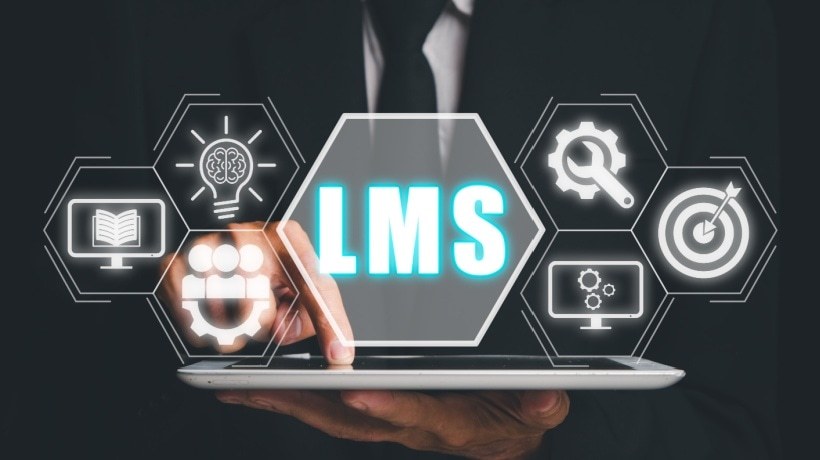LMS Admin Job Duties And Implementation Tasks To Consider
Learning Management Systems (LMS) administrators are involved in virtually every aspect of the LMS implementation process, from finding the best tool for the job to maintaining the system and gathering crucial feedback. They’re also charged with rallying the Learning and Development (L&D) troops and giving online learners the ongoing support they need. If you’re an LMS admin, you should know what tasks fall under your purview to avoid boundaries being overstepped. Likewise, HR managers must use this insider knowledge to find the right person for the job and give them the required resources. Here are 10 integral LMS admin job duties and implementation tasks to consider for your next eLearning project.
1. Delegate Team Tasks And Clarify Responsibilities
In many respects, the LMS admin is the team leader and must provide technical guidance. They should know how to create a realistic LMS implementation timeline and break it down into individual tasks. They must also choose the best team members for the job. Another key LMS administrative duty is to clarify responsibilities so everyone knows what’s expected of them and how their tasks fit into the grand scheme. For instance, explaining how one aspect of the eLearning content development process relates to the entire eLearning project.
2. Develop eLearning Courses
While LMS administrators may not have to create the content, they play an active role in eLearning course development and maintenance. They ensure all team members work well together and know the common goal. For example, acting as a go-between for the stakeholders and the L&D team to ensure everything runs smoothly.
3. Assign Roles To Corporate Learners
In addition to assigning roles and responsibilities to team members, LMS admins must also define user roles. For instance, which corporate learners have access to specific online training content, or which prerequisites they must complete before they’re able to unlock certain online training modules or activities. Roles are based on numerous factors, from job responsibilities and positions to performance gaps.
4. Maintain Accurate Records
Modern LMSs take care of most reporting tasks these days. However, it still takes the human mind to evaluate all the LMS metrics and make sense of the data. So, analytics and reporting also fall under the LMS administrator’s job description. They must maintain accurate LMS records and analyze Big Data to gauge effectiveness. In some cases, record maintenance also involves the eLearning budget and business reports that tie into online training.
5. Provide Technical Support
There are two facets to this job duty. First, LMS admins help users get the most out of the tool. For example, they instruct online learners on accessing vital learning material when they lack the necessary tech skills. The second is that they must provide support to the in-house tech team. If there’s a glitch, they must delegate troubleshooting tasks to the right IT experts and give them all the necessary resources.
6. Review And Revise eLearning Content
The eLearning Project Manager is usually responsible for creating and editing the eLearning content. That said, the LMS admin is the last line of defense before that content is deployed to the audience. Thus, they need to review and revise any last minute errors that diminish the quality of the eLearning course. For instance, addressing navigation issues or remove irrelevant images that clutter the eLearning course design.
7. Collaborate With Other Departments To Fine-Tune The Online Training Strategy
LMS admins must accommodate everyone’s needs and verify that each department gets the online training resources they expect. Thus, they must work with other in-house teams to fine-tune the online training strategy. For example, the customer service department manager needs to update their online training course to reflect new policies or procedures.
8. Provide Ongoing Feedback
Feedback is an essential aspect of eLearning. Among the LMS admin job duties is to provide continual feedback to their L&D team to streamline the workflow and to corporate learners who may require additional support to achieve their goals. For instance, employees risk violating compliance if they fail to achieve their safety certificate. The LMS admin may have to step in, assign the coursework, and follow up with the employee.
9. Maintain The Learning Management System
Of course, one of the top LMS admin job duties after the content has been deployed is maintaining the system. This encompasses several tasks, from upgrading the system to maximize functionality to uploading new content to achieve the online training objectives. Their primary concern is ensuring everyone gets the most benefit from the platform. The organization is getting the best ROI, and corporate learners are getting high-quality content that’s easy to digest. This requires an LMS and an online training strategy that work in tandem to achieve the desired outcomes.
10. Provide Insider LMS Knowledge
Last but not least, LMS administrators are the in-house LMS experts. They may not be on the LMS vendor’s payroll, but they must still know every feature and function and how the platform can help the organization realize its goals. They are the primary resource for troubleshooting User Interface (UI) issues, navigability challenges, and any other obstacles related to the system. They might also be on hand to develop resources to help others master the platform, such as walkthroughs or demos that showcase how to customize the dashboard or access the LMS reports.
The Skills Of An LMS Administrator
Now that you have an idea of the LMS administrator's job duties, which include a mix of learning management and IT systems administration, it’s clear that these professionals oversee the organization's learning technology, including learning experience platforms and management systems. But what skills do they need to possess to do the job right? An LMS administrator must have technical expertise, organizational skills, and interpersonal abilities. Here are the key skills and qualifications they need to have:
Technical Expertise
An effective LMS administrator must know LMS systems, application programming interface (APIs), and connectors, and be knowledgeable about the technical facets of LMS deployment, such as configuration, integrations, and software updates, to guarantee optimum system performance and compliance with organizational tools.
Data Analytics
Another facet of the LMS administrator's work is their capacity to decipher learning metrics and produce useful insights. By examining student progress and course completion rates, LMS administrators can find patterns, gaps, and opportunities to improve training programs and learning outcomes.
Project Management
LMS administrators should possess skills in timeline management, stakeholder coordination, and guaranteeing the successful implementation of learning projects. With strong project management abilities, they can offer solutions on time and match learning initiatives with company objectives.
Communication Skills
A learning management system administrator must possess strong writing and verbal communication skills to work with teams and respond to user support inquiries from learners. As the liaison between students, suppliers, and leadership, administrators must communicate clearly to address problems and obtain input.
Data Entry and Software Skills
LMS administrators must understand how to upload new online training materials, move data, and make the most of the software's features for the team. They must also have experience assigning responsibilities and registering new corporate learners in the Learning Management System. LMS administrators need to be familiar with the dashboard and UI to easily navigate the LMS. Finally, they must be able to link the new LMS platform with the existing software, for instance, integrating the LMS with writing or collaborative tools.
Technology Troubleshooting
Another hat that LMS administrators wear is tech troubleshooter. To get the most out of the LMS tool, they need to be able to resolve software problems. The troubleshooting duty also extends to their L&D team's daily tasks. LMS administrators must ensure everyone gets access to the information they need and that the online training project goes well. Solving problems is an essential ability that enables individuals to overcome challenges and address issues before they become widespread.
UI Management
An LMS administrator must ensure that the interface is easy to navigate for both teachers and students. User experience can be greatly enhanced by knowing the fundamentals of web design (such as layout, color scheme, and font selection) and being able to modify the LMS front-end.
Content Management
Courses, modules, quizzes, and certificates are just a few of the content types that administrators need to be skilled at posting, maintaining, and organizing. Understanding how to manage knowledge and rationally match it with learning goals is crucial.
Conclusion
An LMS administrator must hold a bachelor's degree in IT, instructional design, human resources, or a related discipline. It would also be advantageous to have a learning management platform certification. With these degrees, administrators are prepared with theoretical knowledge and practical experience in LMS management.
LMS admins wear many hats. However, defining expectations and responsibilities beforehand benefits all parties involved. Admins know what’s required of them, and the organizations that hired them understand their professional limits. Thus, ensuring a smooth LMS implementation process that offers the best possible outcome: a successful eLearning experience.
Are you ready to switch from traditional to online training? If you’re already online, is it time to look for a replacement platform to improve your ROI? Read the article 9 Overlooked Benefits Of Investing In A New Learning Management System and discover the overlooked advantages of investing in a new LMS for your organization.








